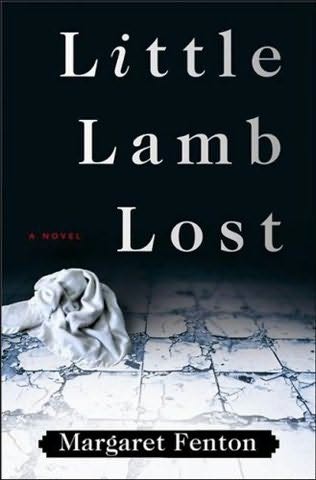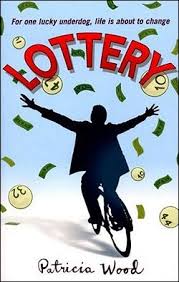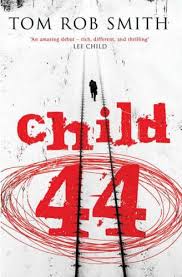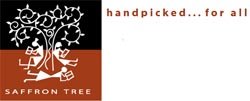Cross posted here.I get into a bookish frenzy over posts like
this,
this and
this. I grew up reading incessantly, and now as a mom, I spend a lot of time looking for books my daughter can enjoy and grow with the way I did.
Like Chox said, there is a great overload of 'girly' girls out there in in the bookiverse . There are the
Princess and
Tiara Club series, for instance, that are all the rage with the Imp and her gang, but they're full of parties and royal balls and the general good girliness that really set my teeth on edge. While I loved pretty much everything
Enid Blyton wrote as a kid, I have to say in hindsight that her girls really did not do much. Amelia Jane and the Naughtiest girl in school are generally chastised for doing anything out of the ambit of things Blyton considered appropriate for girls; the same goes for the various boarding school series she authored.George, the tomboy from the Famous Five, was perhaps the most adventurous girl Blyton ever came up with, and even she usually plays second fiddle to her male cousins and Tommy the dog.
But we've found some spunky girls in books these past few years, including some gems by Indian writers. While they have all been in books marked for older age groups, I've introduced them to the Imp anyway and she has certainly enjoyed them too.
So here's my addition to the lists drawn up by Chox and Ra( I love all the books they mention in their lists, and won't repeat them)
Firstly, Indian authors/ characters...
The three heroines of the stories in
Unprincess! by
Manjula Padmanabhan. As the title suggests, these are not girly girls, but smart sensible problem solvers. So there's Kavita, who rescues a busload of screaming girls from being eaten by a giant, Sayoni who tames nightmares, and (our favourite) Urmila, a girl so ugly she is used as a weapon of sorts.
Mati, from
Journey to the City of Six Gates by
Graeme McQueen (ok, a Candadian author, but the book is no tourist's view)- a big favourite at home still. it's a fantasy set in ancient India, and weaves a number of strands into its very smart plot - adventure, gender, evironmentalism. A book like
The Sound of Music - perfect on its own, yet leaving you longing for a sequel.
Viks, from
The Smile of Vanuvati, by
Harini Gopalswami Srinivasan - a nicely paced adventure set on an archaeological dig. This is a book that asks to be made into a film, (Vishal Bharadwaj-ji, are you out there?) it mixes fantasy with history with good old fashioned mystery. The author's next book,
Gind, is just out, and looks promising too.
Amie, from
Amie and the Chawl of Colour, by
Chatura Rao. This one is hard to find in shops, though her next book,
Meanwhile, Upriver, is usually available. My review of it
here.
Aditi, from the series by
Suniti NamjoshiIzzy Mumu from
Bringing back Grandfather and Maya from
Maya Running, both by
Anjali Banerjee.
The entire cast of
The Battle for No. 19, by
Ranjit Lal, about a group of girls caught in a house in Delhi during the anti Sikh riots in 1984, and their struggle to stay alive. The story does not shy away from violence and one of the characters actually kills someone, but it is dealt with very well. (The only one in this list I haven't read with the Imp yet)
There is also
Chip off the Old Blockhead by
Rupa Gulab, and
The Summer of Cool by
Suchitra Krishnamurthy, which take a humorous look at older girls and their problems. Not on my favourites list by a long shot, but I expect the Imp will enjoy them when she is eight or nine. Also heard recently about a
Foxy Four series begun by
Subhadra Sengupta.
Some characters by other authors that we have loved..
Fern from
Charlotte's Web, by
E. B. WhiteLucy from the
Narnia books by
C. S. Lewis. There is all manner of religious and chauvinistic preachiness in them, but all this is spoken in glum adult hindsight. As a child, I was blown away by this land on the other side of a cupboard.
Leslie from
The Bridge to Terabithia, by
Katherine Paterson. We've actually read this one already, but I think the Imp will probably like revisiting it later. We saw this as a film first, when the Imp was around four, and t got us talking about a lot of complex issues - alienation, bullying, the death of a child. It also gave us the line we consider our motto -
The greatest prize in life is the chance to work hard at work worth doing. I actually like the film way more than the book, because of the way it brings the imaginary world of Terabithia and Jess's drawings to life.
The girls from books by
Eva Ibbotson ,
Judy Blume and
Jacqueline Wilson.
Jeremy from
Slob, by
Ellen Potter
And here are some girls I look forward to introducing to the Imp when she is a little older..
The Madcap of the School by
Angela Brazil, a very old and very entertaining school story. Link to the free ebook
here.
Sally from the
Sally Lockhart Mysteries by
Philip PullmanLyra Belacqua
from the
His Dark Materials trilogy by
Philip Pullman - the sort of books I'd want with me if I'm ever shipwrecked on some deserted island. I haven't really read these out to the Imp, but certainly described the story to her. We remain fascinated by
daemons.
Sophie from
Sophie's World by
Jostein Gaarder.
Smilla from
Miss Smilla's Feeling for Snow, by
Peter HoegThe Brass Monkey from
Midnight's Children, by
Salman RushdieI expect she will read
Ayn Rand in her teens like I did, classics like
Fountainhead, Atlas Shrugged and
We the Living. While these have some tremendous male characters like Howard Roark and John Galt for her to inspired by, I could never stand the female characters Rand wrote - whiny, overly dramatic, masochistic ninnies the lot of them. She did a Blyton too.
Are there other girls out there in the bookiverse you can introduce us to? Do tell.
**************************
More....
Picture books:Today is MY Day, by Anushka Ravishankar.
The Wacky Witch War, by Ellen Jackson
(Some additions, courtesy Linda Sanders-Wells)
Harriet's Had Enough!, by Elissa Haden
Beatrice Doesn't Want To, by Laura Numeroff
Martha Doesn't Say Sorry, by Samantha Berger
Maggie's Monkeys, by Linda Sanders-Wells
For Older Girls:Victory Song, by Chitra Divakaruni Banerjee (thanks, Chox!)
Mma Ramotswe from the No 1 Ladies Detective Agency, by Alexander Mccall Smith
 Anna’s World
Anna’s World




















